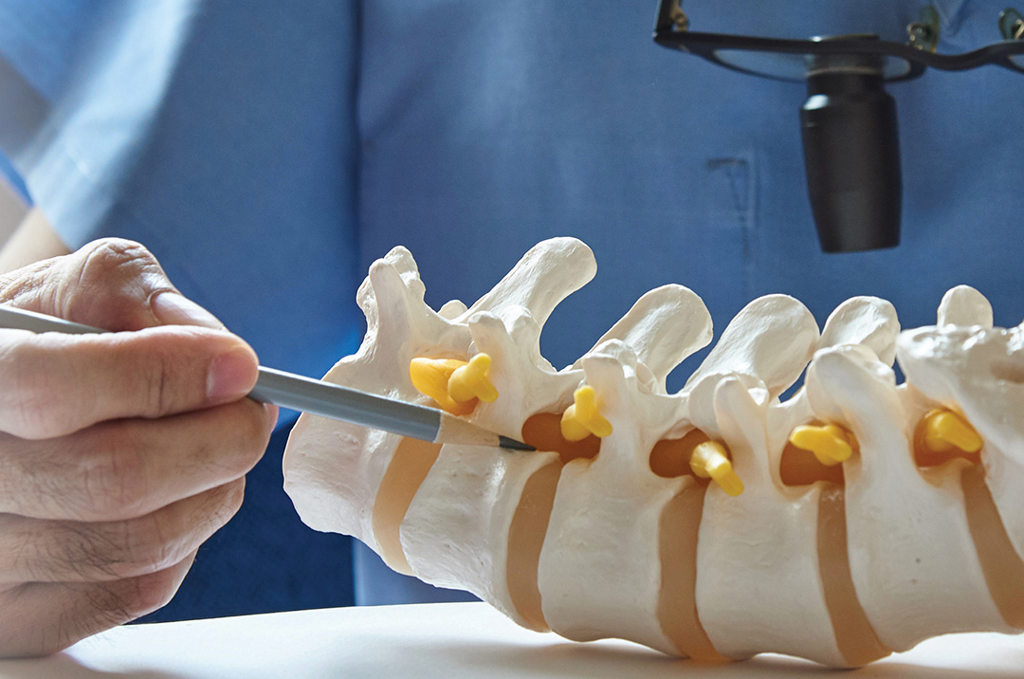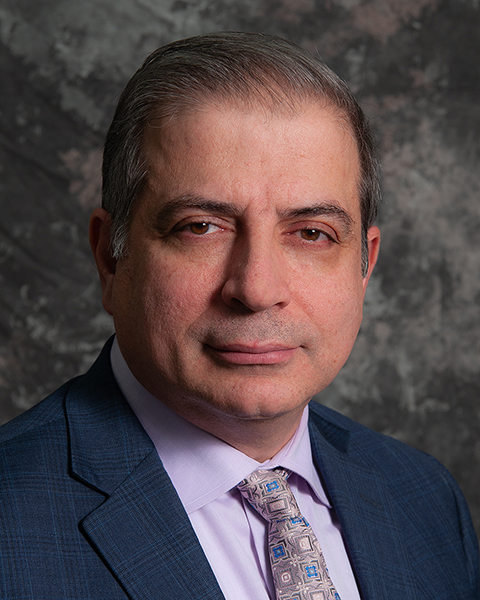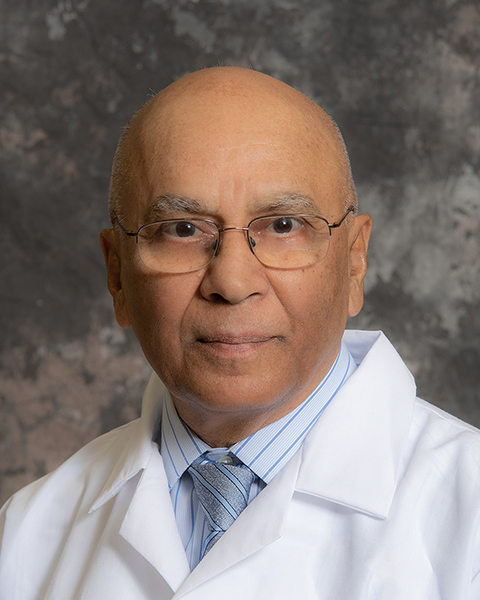
Spine Surgery Can Get You Back to Life!
Spine Surgery
From kyphoplasty to discectomy, there are many types of spine surgery to correct spine problems, relieve your back pain or neck pain, and get you back to work and to the activities you love. The back doctors at Penn Health Highlands Brain and Spine Center are expert spine neurosurgeons who have decades of experience performing simple to complex spine surgery. Our spine neurosurgeons also have special expertise in minimally invasive spine surgery, which can help you heal faster with less pain.
The Brain and Spine Center
The new Penn Highlands Brain and Spine Center is a specialized surgery center dedicated to the superb treatment of patients who need any type of brain surgery or spine surgery. It is located at Penn Highlands DuBois. The hospital has provided specialized training to nursing and support staff, diagnostic and surgical equipment, and developed surgical protocols to ensure the highest quality of care. In addition to having your spine surgery here, you’ll benefit from a comprehensive team approach including nutrition and rehabilitation specialists to get you back on your feet and back home as quickly and safely as possible.
Do I Need Spine Surgery?
For most patients who suffer from back pain or neck pain, non-surgical treatments will fix your condition. If spine surgery cannot help treat your back pain or neck pain, yet non-surgical treatments have not worked either, you may be a candidate for a procedure to relieve your pain.
Only about one if 15 patients with back pain or neck pain will need surgery. If you have a structural spine problem that is causing pain in your back, neck, arms, or legs, spine surgery may be appropriate. But you shouldn’t be afraid of having spine surgery. With advancements in spine surgery, some techniques can be done with a minimally invasive procedure. This results in a faster and easier recovery.
It’s important to note that spine surgery is only effective if a structural cause for your back pain or neck pain can be identified. If you answer “yes” to many of these questions, spine surgery may be appropriate for you:
- Have you tried physical therapy? (It is important to note that physical therapy is not appropriate for all spine conditions.)
- Have you tried medications?
- Have you tried steroid injections?
- Have you had imaging tests such as X-ray, CT, or MRI of your spine and diagnostic injections?
- Has a structural cause of your pain been identified?
- Does your pain greatly diminish your quality of life or activity level?
- Does your general health and age support spine surgery without creating an undue health risk?
What Type of Spine Surgery Do I Need?
There are two categories of spine surgery. Both are meant to relieve your pain, restore your function as much as possible, and prevent further damage. Decompression surgeries relieve pain by taking pressure off nerves or releasing pinched nerves. Stabilizing spine surgery provides strength and stability and alleviates pain by removing motion. Both types of surgery are appropriate for many spine conditions and your back doctor will talk to you about the pros and cons of each and why he is recommending a particular spine surgery.
Our spine neurosurgeons have decades of experience performing most types of spine surgery and can offer minimally invasive spine surgery, where appropriate. Some of the types of spine surgery performed by our back doctors include:
Spinal Decompression Surgery – There are several types of spinal decompression surgery that are all used to remove a portion of the spine to make more room for the nerves, which relieves pain in the lower back, neck, legs, and arms. The various types of decompression surgeries include laminectomy, laminotomy, foraminotomy, and discectomy.
Kyphoplasty and Vertebroplasty – These minimally invasive spine surgeries are used to treat spinal fractures, most often caused by osteoporosis. In both procedures, your spine surgeon will insert a hollow needle into the fractured vertebra. In vertebroplasty, the neurosurgeon will inject bone cement directly into the fracture. With kyphoplasty, the neurosurgeon will insert a balloon to create a space that he then fills with bone cement. Your doctor will talk to you about which of these procedures is best in your case.
Spinal Fusion – This surgery is the most common type of stabilizing spine surgery. It is used to relieve back pain or neck pain that is caused by motion. Spinal fusion also helps to prevent further deterioration in the spine. During spinal fusion, your neurosurgeon will remove the discs between the vertebrae that have been injured through an accident, arthritis, or simply wear-and-tear during the course of aging. The spine surgeon then welds the adjacent vertebrae together using either bone grafts or metal inserts to create a solid bone.
When Should I Have Spine Surgery?
In most cases of back pain or neck pain, patients can be helped through non-surgical treatment such as physical therapy or steroid injections. In general, your back doctor will recommend these treatments first and monitor you. If you haven’t improved in about six weeks, your back doctor may recommend spine surgery.
If you have back pain or neck pain that has not gone away on its own or home treatment after a few weeks, it’s important to talk to your doctor or schedule a consultation with one of our spine neurosurgeons so that they can assess the situation and get started on treatment. In some cases of structural spine conditions, it pays not to wait too long to see a doctor. For instance, among people with a herniated disc, those who waited more than six months to undergo surgery after symptoms arose had worse outcomes than those who had surgery within six months of first experiencing pain. In addition to herniated discs, research shows that spine surgery may be more beneficial than non-surgical treatments for patients with spinal stenosis.

Neurosurgery
Penn Highlands Neurosurgery - DuBoisA Service of Penn Highlands DuBois
Penn Highlands Neurosurgery - Greensburg
Penn Highlands Neurosurgery - Huntingdon
Penn Highlands Neurosurgery - Monongahela
Penn Highlands Neurosurgery - Uniontown

Neurosurgery
Penn Highlands Neurosurgery - DuBoisA Service of Penn Highlands DuBois
Penn Highlands Neurosurgery - Greensburg
Penn Highlands Neurosurgery - Huntingdon
Penn Highlands Neurosurgery - Uniontown

